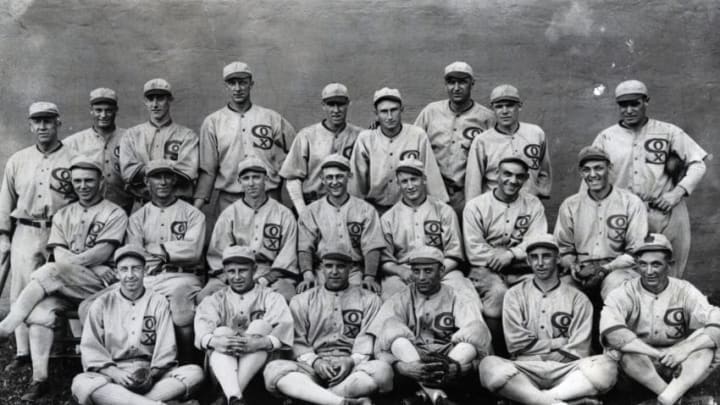
Black Sox Scandal Misconception #8: The myth of the players’ silence
Asinof is probably the person most responsible for the widely held idea that fix participants were “shamed into silence” by their involvement, and that they held to it throughout their lives.
More from Call to the Pen
- Philadelphia Phillies, ready for a stretch run, bomb St. Louis Cardinals
- Philadelphia Phillies: The 4 players on the franchise’s Mount Rushmore
- Boston Red Sox fans should be upset over Mookie Betts’ comment
- Analyzing the Boston Red Sox trade for Dave Henderson and Spike Owen
- 2023 MLB postseason likely to have a strange look without Yankees, Red Sox, Cardinals
While it is true that few of the participants – or for that matter few of their clean teammates – made themselves available to Asinof during his preparation of “Eight Men Out,” they hardly maintained a vow of silence.
In fact, researchers have uncovered more than 100 instances where scandal participants or figures from both –participating teams freely discussed their recollections of it. Eddie Cicotte and Happy Felsch both did so several times, expressing remorse. Chick Gandil sat down for a famous interview with Melvin Durslag in the Sept. 17, 1956 issue of Sports Illustrated in which he discussed his perception of the episode.
Swede Risberg did the same in a 1941 interview with the Oakland Tribune. “Only six men living know the truth,” he said, leaving unclear which two of the accused eight he believed did not have a full grasp of the facts.
In fact, from 1925 onward, only Lefty Williams and Fred McMullin are not on record as having spoken about their perceptions of the scandal on several occasions.
The same is true of teammates and opponents. In a 1940 Sporting News interview with Ed Burns, catcher Ray Schalk denied reports that the team was ‘disgruntled.’ Similarly, in a 1943 interview with the New York World-Telegram, Eddie Collins, the team’s star second baseman, recounted an incident during a 1920 game in which Dickie Kerr accused some of the White Sox players of not giving their best. “If you fellows are throwing this one, let me in on it,” Collins recalls Kerr telling them.
